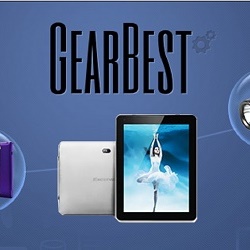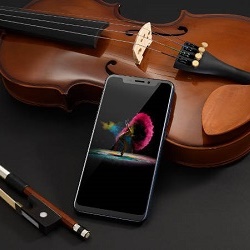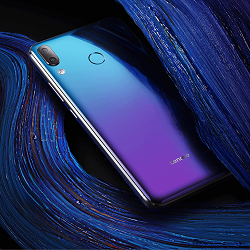IPhone vs Android: which is better?
The debate about which device is better on which operating system has been going on for very many years. They have arisen since the advent of iOS and Android, and do not subside to this day. Adherents of both systems argue the most different arguments in defense of their OS, and sometimes these arguments, at least, can be called absurd. Today will be put an end to the confrontation of iPhone vs Android. In order to understand what is better - iPhone or Android, we will evaluate the system by several important criteria.
Content
The fundamental differences between the two systems
First you need to understand the features of the OS and identify the differences between the iPhone and Android. It is most logical to do this by five criteria:
- system stability;
- software compatibility;
- communications;
- memory expansion;
- personalization.

Stability
The first criterion that is clearly worth attention is the stability of the operating system. From the owners of devices on Android, you can often hear that the phone freezes, gives errors and sometimes works slowly. This is the fault of the OS, or rather, its adaptation to a specific phone. It's no secret that the iPhone differs from Android in that it works under its own iOS, and it is developed exclusively for iPhones and iPads, takes into account all the technical features of these devices and is refined as thinly as possible for specific devices.
Google, which created Android, delivers it to a huge number of devices. Their total number exceeds tens of times the number of Apple smartphones. That is why it is impossible to fine-tune Android for each phone. For this reason, it turns out that Android phones may be unstable, while iOS doesn’t have this problem in iPhone.
Important! The stability of the iPhone is an order of magnitude better than Android, but you need to understand that expensive devices on Google’s system have excellent optimization and, more often, Apple is not inferior. Therefore, failures in the OS can be observed on low-cost and medium-priced phones with the system from Google.
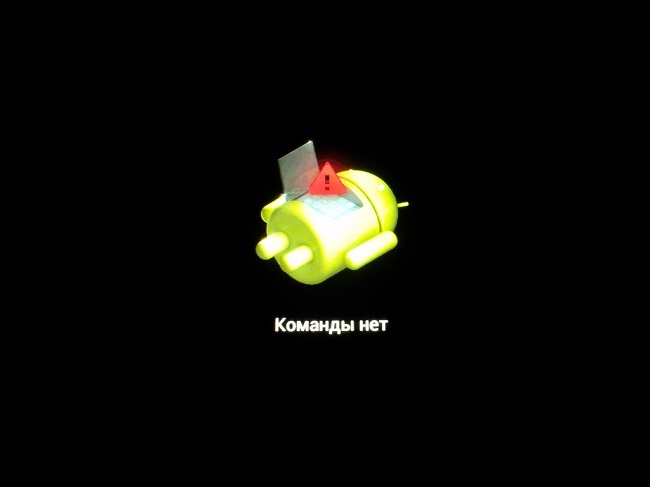
Technical features of the device and software compatibility
The google app store is open, that is, any developer can add his program to it. Obviously, not all companies are large, and if serious developers check their software for compatibility with most of the most popular and popular processors, then small companies do it on a couple of main chipsets. Eventually Many applications are not workable or unstable.
An open store is a serious disadvantage, because on the one hand there is a lot of useless non-working software, and there is no likelihood that some kind of hacker under the guise of a program has placed a terrible virus there. On the other hand, an open store is a larger choice of programs and, importantly, free ones.
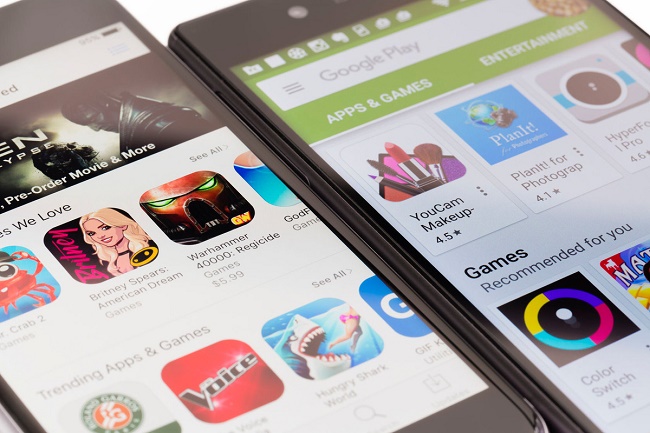
The difference between app stores Apple and Google are great.
- The apple brand has an order of magnitude less software, and most often it has a paid character.
- It’s impossible to install pirated software on iOS (in order not to pay for it), this is real for Google. All software from the iPhone store is working, and it’s impossible to pick up a virus there.
Again, returning to the topic of hardware, it turns out that the software developer knows for sure Apple phones,for which his software will be installed, and today it is from iPhone 4 to iPhone XS Max, that is, all models can be counted. In other words, adapting applications for Apple devices is much easier than for those managed by Android. Another difference related to hardware is that due to the excellent adaptation of iOS, the characteristics of the iPhone often look simpler than on Android models, while the difference in speed and multitasking is often absent.
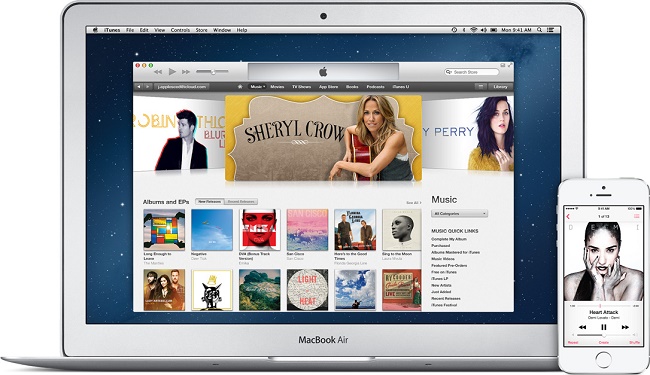
It is interesting! Apple devices do not become obsolete, that is, there is no such thing that the old iPhone will at some point work on an unsupported operating system, where new applications cannot be installed. The manufacturer constantly updates the entire line of phones, and in most cases the device stops working only because of a breakdown, and not because it is outdated. Google phones on older versions, for example, the 2nd or 4th Android, are already considered old. Putting new software on them is a difficult task, and even such popular applications as Viber, WhatsApp work only if they are not updated, and that is very crooked.
Even if you compare the speed of work on the oldest iPhone and Android of the same year, the difference will be enormous.You can argue for a long time, but the result is generally the same - they don’t abandon theirs at Apple, although this applies only to the system.
Communication capabilities
The next parameter that will help you to find out who is better and more convenient is communication with the world. The equipment on both systems has support for LTE, Wi-Fi. There are no problems here. But the work of Bluetooth on iOS is that it is intended only for synchronization with headsets, and also through Bluetooth, the iPhone can work as a modem. You can’t transfer files or contacts to iOS via Bluetooth, in this case there’s an advantage on the Android side, there’s no problem with that.
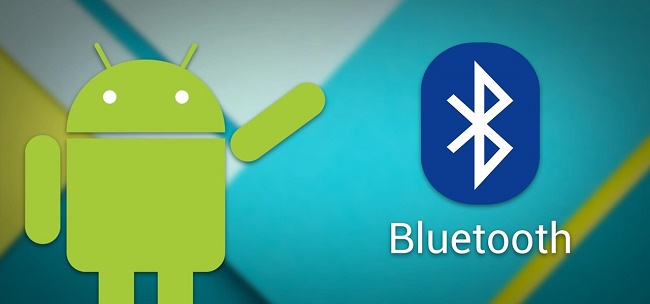
Transfer files from PC On Android, too, does not cause serious difficulties. It is enough to connect the smartphone with a wire to a laptop, and the first one will be displayed as removable media, that is, music, photos and videos can be copied by direct transfer. Apple is not such a trivial task. PC must be installed special file manager - iTunes. Through it, you can transfer any files, as well as update programs, synchronize the device and create backup copies. On the one hand, it is convenient, but just come to someone to visit and throw some content into your iPhone will not work. This is another disadvantage.
Memory expansion
The next moment is Apple does not allow its users to expand device memory. That is, they are limited by the number of gigabytes that were on the device at the time of purchase, and if the new memory devices offer a large amount, then in old iPhones it could be limited to 16 gigabytes, which is quite a bit. The vast majority of devices on Android can put a memory card, and moreover, use it as the main drive, that is, applications, photos and other files remain on the memory card. This is also convenient because, if necessary, the user puts a big card and continues to enjoy life, and on iOS you will need to think about cloud storage or buying a new device, and this is very expensive. Apple devices are much more expensive smartphones from others, even very popular manufacturers. This, of course, a minus.
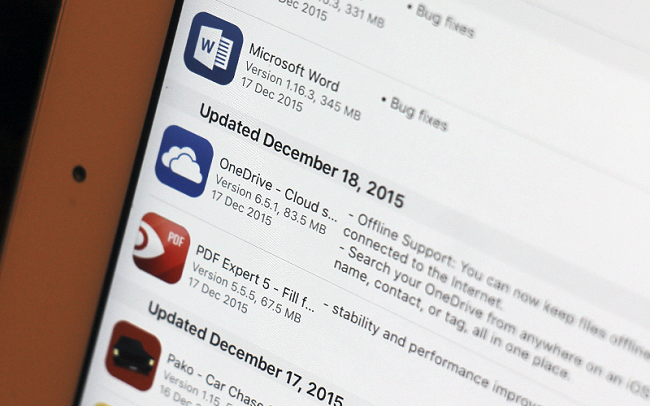
Last plus removable memory - the device broke, files remained on the card. At Apple - the device broke, files have sunk into oblivion, if they were not previously synchronized with cloud storages.
Important! Another point that can be attributed to the advantages of Android, associated with memory - OTG support,that is, the phone through a special cable can work with a conventional USB memory. Apple can't do that.
Personalization
Setting the music on the bell will not cause problems for owners of Android. In Apple, this problem is also solved, but by performing some manipulations. You need to go to iTunes, select a melody, buy it, and only after that it will delight the owner of the device as a ringtone. Just download your favorite music from the network and install it on the phone will not work. The same goes for listening to music. It is either purchased in a special store, or installed from a computer through the iTunes program installed on it.
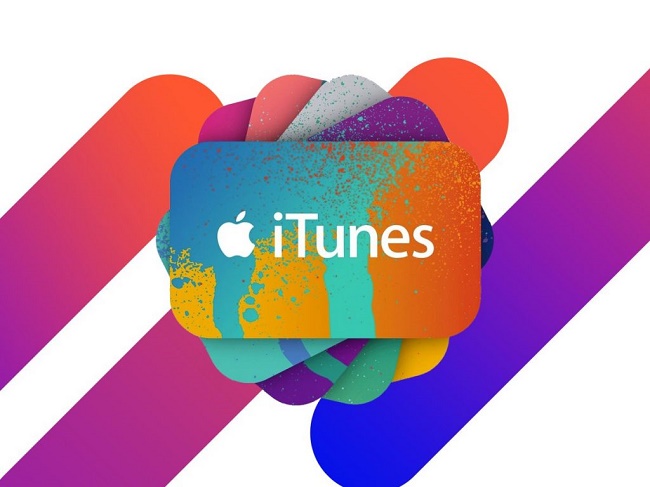
Another nice bonus for Android owners is the ability to make the phone as personal and personalized as possible. For this All sorts of themes, wallpapers, launchers, ringtones and many other things are available. Apple also has such opportunities, but they are much smaller, and the degree of personalization is much lower. In other words, Apple will always remain Apple, no matter how you disguise it, but Android can be turned into something completely unrecognizable, but by itself.
Let's sum up
For ease of understanding the advantages of the iPhone, as well as its disadvantages are summarized in a single table.
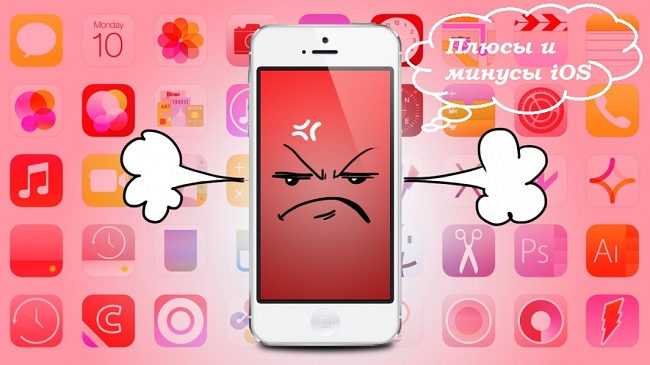
| Apple | |
| Merits | disadvantages |
| No viruses | Fewer applications |
| Stable work | A lot of paid software |
| Update even the oldest smartphones | You can not put a pirated program (not to pay) |
| All applications are working | Cannot expand memory |
| Fewer options for personalization | |
| It is inconvenient to mix files from a PC | |
| Defective Bluetooth work | |
| Difficult to put ringtone | |
| High price | |
So, to say that iPhone is better than other smartphones, it is impossible. He has his pros and cons. It can be concluded - Apple technology is good in terms of smoothness of work and its stability, but the degree of convenience is higher for Android. Still, in terms of simplicity of the interface, the brainchild of Google is still winning. On the other hand, difficulties when working with iOS arise only among new users of the system, it is enough to master the system once, and it may seem even more convenient. Many people who changed from one system to another and after that said that in general it is convenient to work there and there, you just need to get used to it. The buyer needs to decide what is more important to him - a lot of opportunities and periodic hangs / braking or a less clear and convenient system, which at the same time will always work like a clock and will not cause irritation,when another window appears with an error and the need to restart the device.

/rating_off.png)



